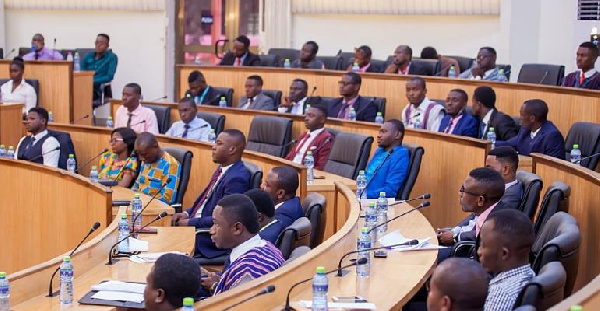
As the General Election approaches, we delve to discuss a topic of utmost significance – the influence of political parties on the Ghanaian youth. Our nation’s future rests upon the shoulders of its young citizens, and it is imperative that we deeply comprehend the profound impact that political parties have on their minds, aspirations, and actions.
The influence of political parties on Ghanaian youth is multi-faceted. On one hand, political parties provide a forum for young people to express their opinions, concerns, and aspirations. They offer a means for the youth to actively participate in decision-making processes that directly impact their lives. By joining these parties, young Ghanaians can engage in discussions, learn about political processes, and contribute to shaping policies that resonate with their values.
Also, political parties give our youth opportunities for leadership and personal maturation. Young Ghanaians can acquire significant expertise such as public speaking, teamwork, and negotiating by participating in youth wings and grassroots initiatives. These experiences not only prepare them for active citizenship, but also prepare them to be the leaders of tomorrow, capable of guiding our country to prosperity.
We must also acknowledge that the influence of political parties on the Ghanaian youth can be a double-edged sword. The allure of partisanship can sometimes lead to blind allegiance, where young individuals might embrace party ideologies without critically evaluating their implications. This can result in a divided youth, unable to engage in constructive dialogue and collaboration across party lines. It is vital that our youth are encouraged to think independently, question the status quo, and seek common ground for the greater good of our nation.
Furthermore, the role of social media in today’s world cannot be understated. Political parties utilize these platforms to target our youth with tailored messages, often amplifying polarizing viewpoints and contributing to echo chambers. It is our collective responsibility to teach our youth media literacy and critical thinking skills, enabling them to discern between factual information and sensationalized narratives.
As we stand at this crossroads, it is imperative that we work together to ensure that the influence of political parties on our youth remains positive and constructive. Our educational institutions, community leaders, and families must collaborate to nurture a generation of well-informed and responsible citizens. We must encourage open dialogue, promote diversity of thought, and inspire our youth to rise above partisan lines for the greater good of our nation.
Additionally, there is the issue of polarization. In recent years, we have witnessed how political polarization can lead to divisiveness and hinder constructive dialogue. The youth, being more impressionable, might be susceptible to adopting extreme views without fully understanding the implications. This can undermine the potential for collaboration and compromise – key elements in the functioning of a healthy democracy.
With enormous power, however, comes great responsibility. It is critical that political parties recognise their responsibility to develop and guide our youth’s aspirations in a positive direction. Rather than focusing their enthusiasm and energy on short-term benefits, political parties should concentrate in instilling a sense of civic duty, ethical principles, and a commitment to the common good. It is our common responsibility to ensure that our youth are not mislead or manipulated, but are instead empowered to make informed decisions that determine our nation’s future.
Political parties must collaborate to bridge the generational divide. Our youth provide new perspectives and ideas, while our veterans provide context and historical knowledge. The convergence of different perspectives can result in well-rounded solutions that address both current and long-standing challenges. Political parties should actively endeavour to establish environments that develop mutual respect and understanding through intergenerational discourse.
To end with, the influence of political parties on Ghanaian youth is a two-way street distinguished by opportunities and responsibilities. Youth have the ability to awaken our political landscape with their energy and ideas, but political parties must provide them with an atmosphere of warmth that supports active citizenship, ethical principles, and active participation. We can use this synergy to propel our country forward, towards inclusivity, and towards long-term development.

